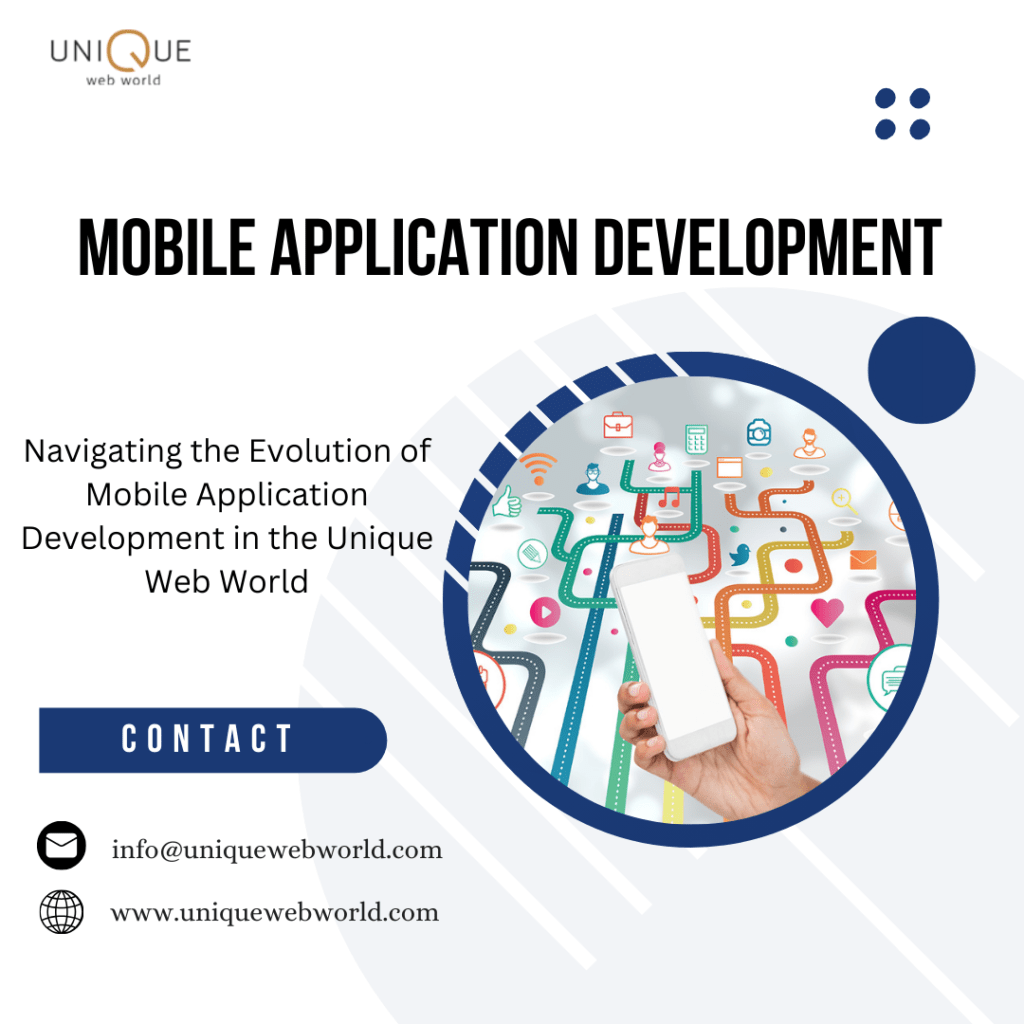In the ever-evolving landscape of the digital realm, Mobile Application Development stands as a cornerstone of innovation, driving transformative experiences and reshaping the way we interact with technology. In this exploration, we delve into the intricacies of Mobile Application Development within the Unique Web World, unraveling its significance, challenges, and the unparalleled opportunities it presents.
Unveiling the Essence of Mobile Application Development
At its core, Mobile Application Development encompasses the process of creating software applications specifically designed to run on mobile devices such as smartphones and tablets.
Mobile Application Development transcends traditional web-based solutions, offering tailored experiences that leverage the unique capabilities of mobile devices, including:
Native Applications:
Built for specific platforms such as iOS or Android, native applications offer optimal performance, seamless integration with device features, and access to platform-specific APIs.
Hybrid Applications:
Combining elements of both web and native applications, hybrid applications leverage web technologies such as HTML, CSS, and JavaScript within a native container, offering a balance between cross-platform compatibility and performance.
Progressive Web Applications (PWAs):
Web applications that leverage modern web technologies to deliver app-like experiences directly through a web browser, offering features such as offline access, push notifications, and home screen installation.
Navigating the Trends in Mobile Application Development
In the dynamic landscape of Mobile Application Development, staying abreast of emerging trends and technologies is paramount for delivering cutting-edge solutions that resonate with users. Several trends are shaping the trajectory of mobile development within the Unique Web World, including:
5G Technology:
The advent of 5G technology heralds a new era of connectivity, offering faster speeds, lower latency, and enhanced bandwidth, unlocking the
potential for immersive experiences such as augmented reality (AR) and virtual reality (VR).
Artificial Intelligence (AI) and Machine Learning (ML):
Integrating AI and ML algorithms into mobile applications enables capabilities such as natural language processing, predictive analytics, and personalized recommendations, enhancing user engagement and satisfaction.
Internet of Things (IOT) Integration:
As IOT devices proliferate, mobile applications are increasingly serving as gateways for controlling and monitoring connected devices, ranging from smart home appliances to wearable gadgets.
The Impact of Mobile Application Development on User Experience
In the Unique Web World, where user experience reigns supreme, Mobile Application Development plays a pivotal role in shaping the way users interact with digital products and services
Key considerations for optimizing user experience in mobile development include:
Responsive Design:
Ensuring that mobile applications adapt seamlessly to various screen sizes and orientations, providing a consistent and visually appealing experience across devices.
Intuitive Navigation:
Streamlining user flows and navigation paths within the application to minimize cognitive load and facilitate effortless exploration and interaction.
Performance Optimization:
Optimizing app performance through efficient resource management, code optimization, and leveraging platform-specific optimization techniques to minimize loading times and ensure smooth operation.
Embracing Innovation in Mobile Application Development
Innovation lies at the heart of Mobile Application Development in the Unique Web World. From harnessing emerging technologies to exploring novel interaction paradigms, pushing the boundaries of creativity and technical prowess is essential for staying ahead of the curve.
Augmented Reality (AR) and Virtual Reality (VR):
Integrating AR and VR capabilities into mobile applications opens up new possibilities for immersive experiences, spanning industries such as gaming, education, healthcare, and retail.
Blockchain Integration:
Leveraging blockchain technology within mobile applications enables secure transactions, decentralized identity management, and transparent data sharing, revolutionizing industries such as finance, supply chain management, and healthcare.
Edge Computing:
Harnessing the power of edge computing to offload processing tasks from the device to the network edge, enhancing performance, reducing latency, and enabling real-time data processing for latency-sensitive applications.
Conclusion:
Charting the Course for Mobile Innovation in the Unique Web WorldIn conclusion, Mobile Application Development stands as a beacon of innovation in the Unique Web World, offering boundless opportunities for creativity, functionality, and user engagement.


